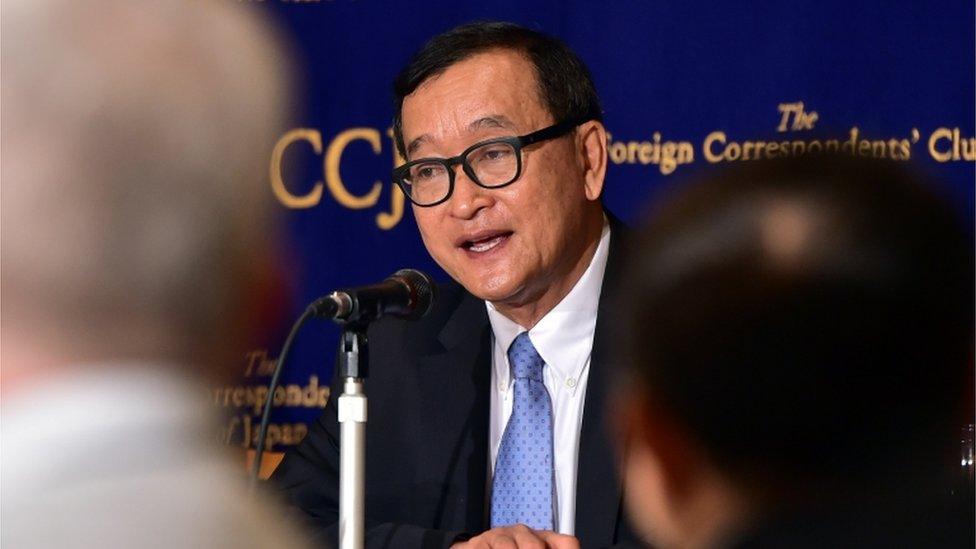Cambodian PM Hun Sen denies buying Facebook likes
- Published
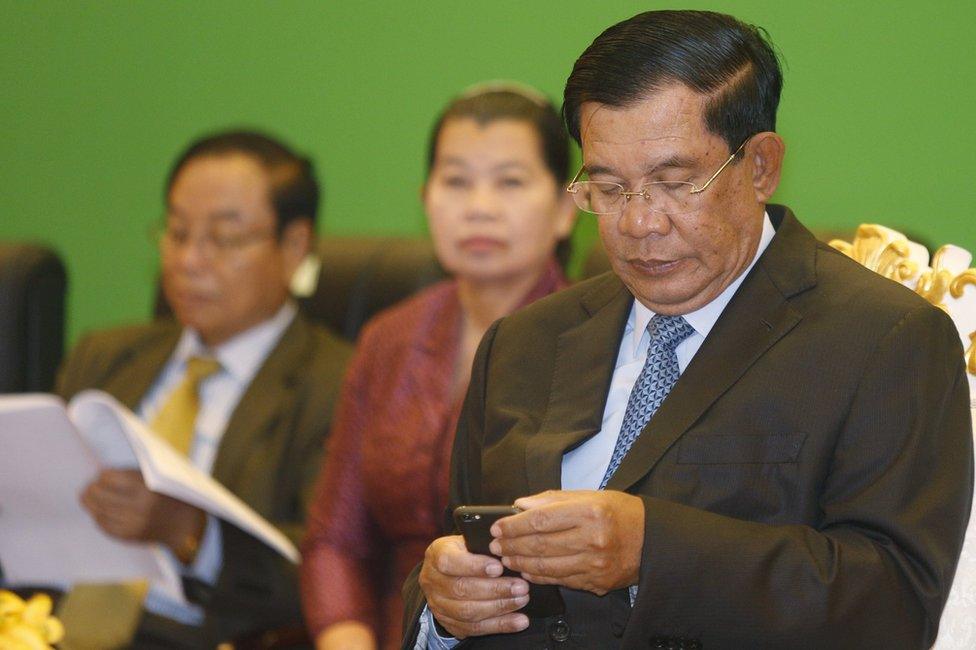
Despite calling himself a digital dinosaur, Hun Sen has a big social media presence
Cambodia's Prime Minister has denied buying fake likes for his Facebook page, after the opposition leader accused him of artificially boosting his popularity.
Hun Sen, 63, who calls himself a digital dinosaur posts frequent updates from his daily life.
His page - established in September - has 3.2 million likes.
Last week, the Phnom Penh Post, external reported that the majority of Hun Sen's recent likes were from foreign accounts.
The biggest single groups of likes came from Indian accounts (255,692), with significant numbers also from the Philippines (98,256), Myanmar (46,368), Indonesia (46,368) and several others, the Post reported.
'I have been recognised by Indian people'
As well as their fierce political rivalry, Hun Sen and opposition leader Sam Rainsy, who lives in exile, are social media competitors too.
Both hope to win over the country's huge young electorate, which in 2013 voted largely for Mr Rainsy's Cambodia National Rescue Party (CNRP), who narrowly lost the election, which they claimed was rigged.
Mr Rainsy's page has 2.3 million likes - significantly fewer than the prime minister, but most are from Cambodian accounts.
After the Phnom Penh Post report, the opposition leader accused Hun Sen of hiring foreigners to create fake accounts and increase the number of fans of his page.
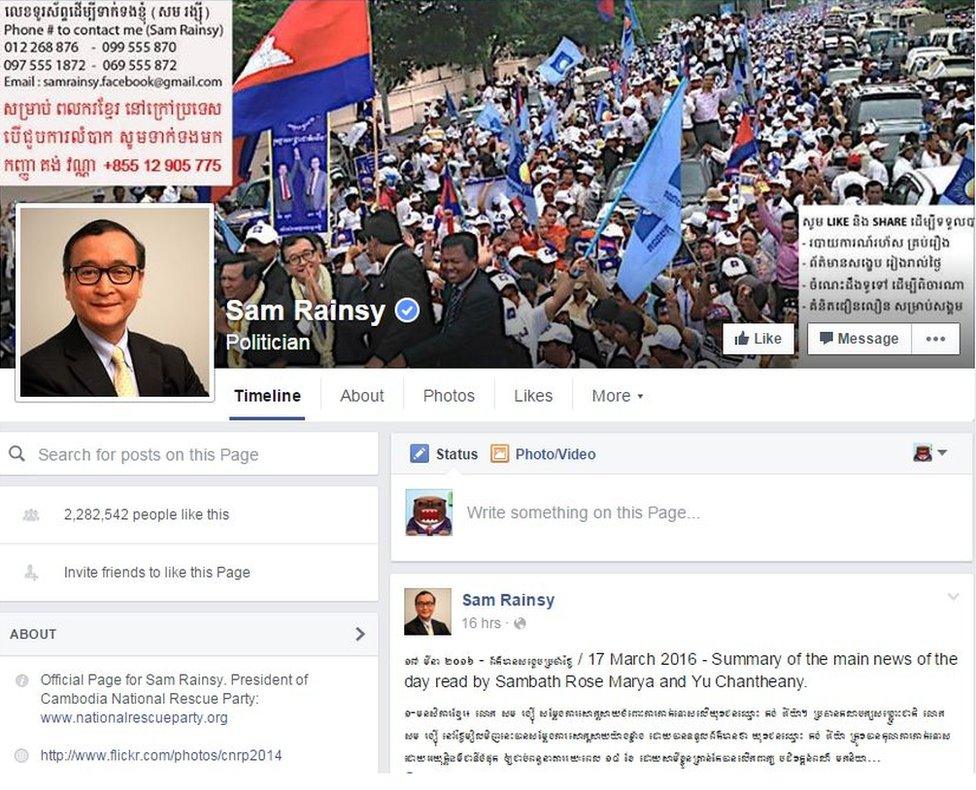
Both sides spend money on legitimate ways to promote their pages
Speaking at a university graduation on Thursday Hun Sen flatly denied this saying: "I don't know where those 'likes' are from."
Mr Rainsy was, he said, a "loser who doesn't agree to lose".
"If I could buy India, I must be really strong. But I am just happy that I, Hun Sen, have been recognised by Indian people and people in other countries as the Prime Minister of Cambodia," he added.
Although Facebook bans the practice and carries out periodic purges of fake accounts, it is possible to buy likes from so-called "click farms", where people are paid small sums to create fake accounts whose likes and follows are then sold.
Celebrities, politicians and even a UK government minister have been accused of buying such social media approval.
- Published14 March 2016
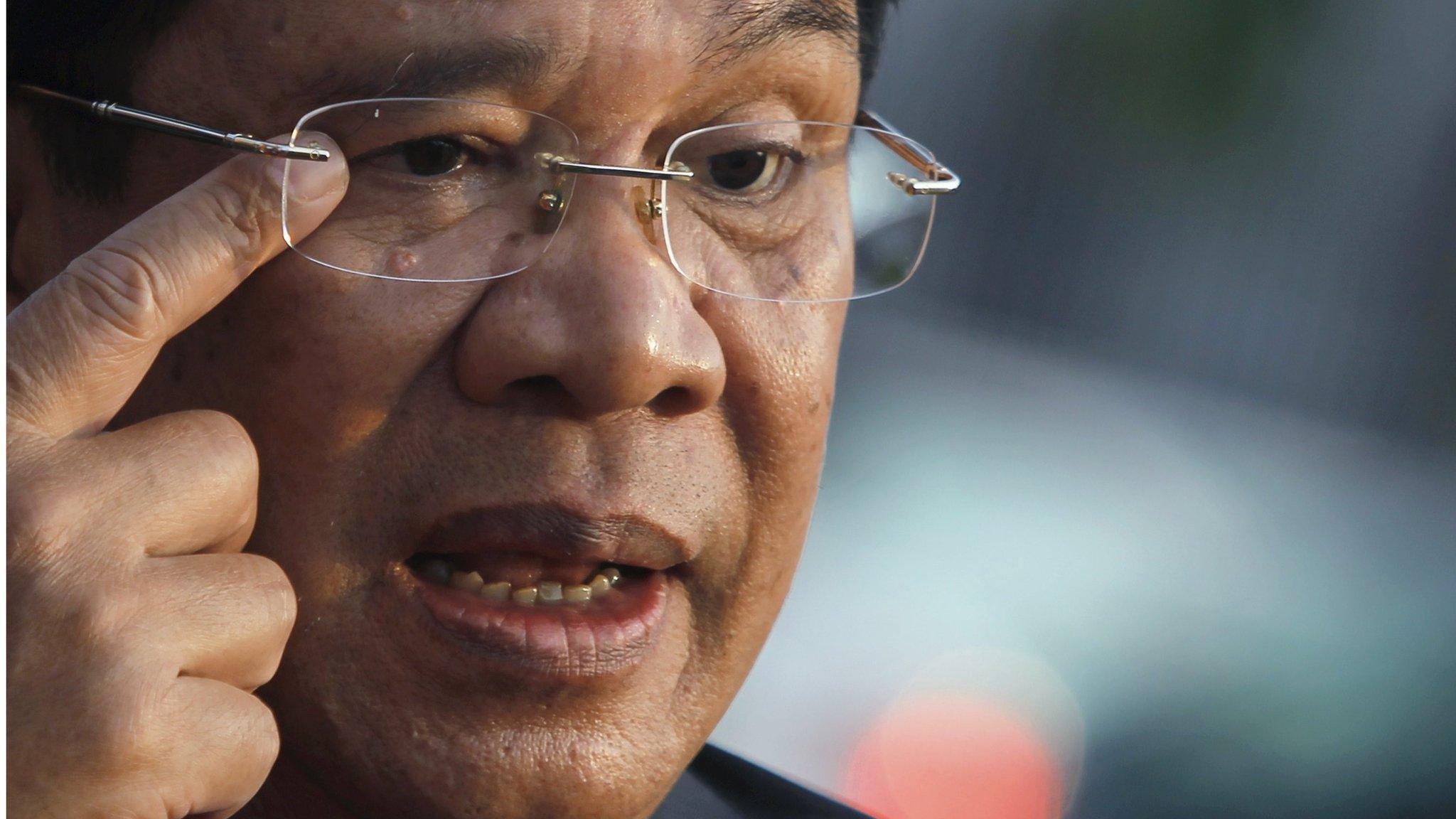
- Published9 July 2014
- Published7 January 2016

- Published27 July 2018
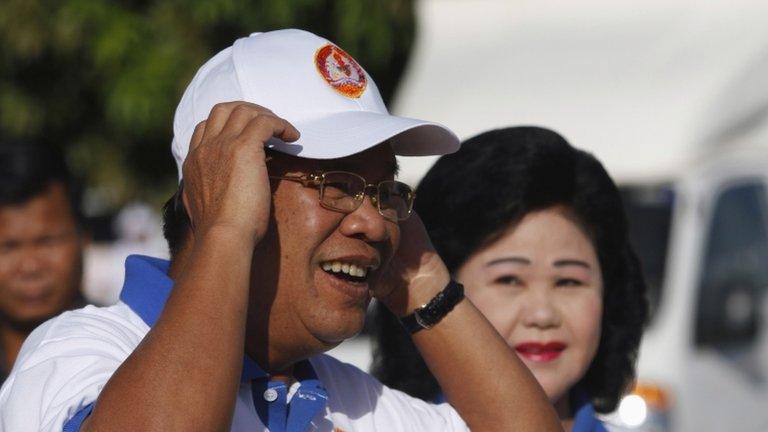
- Published16 November 2015
